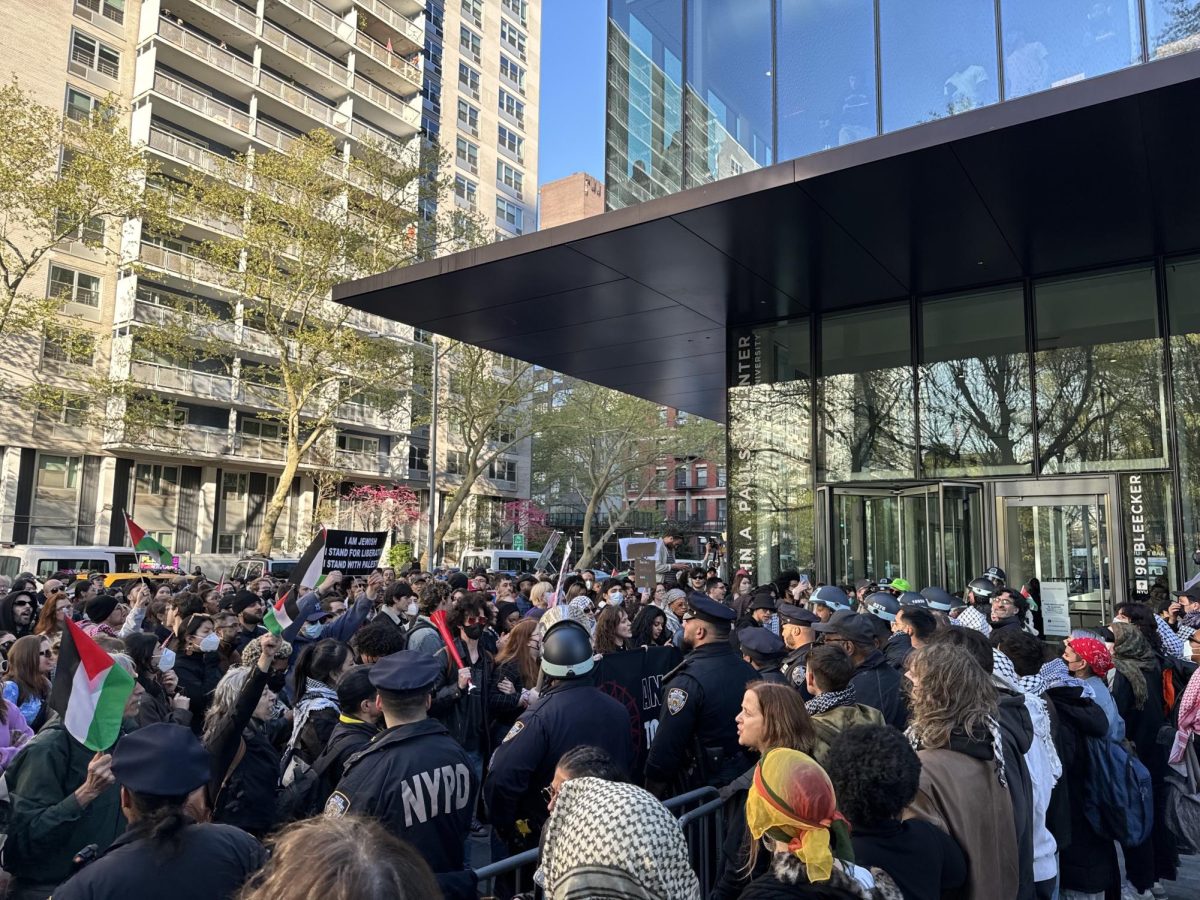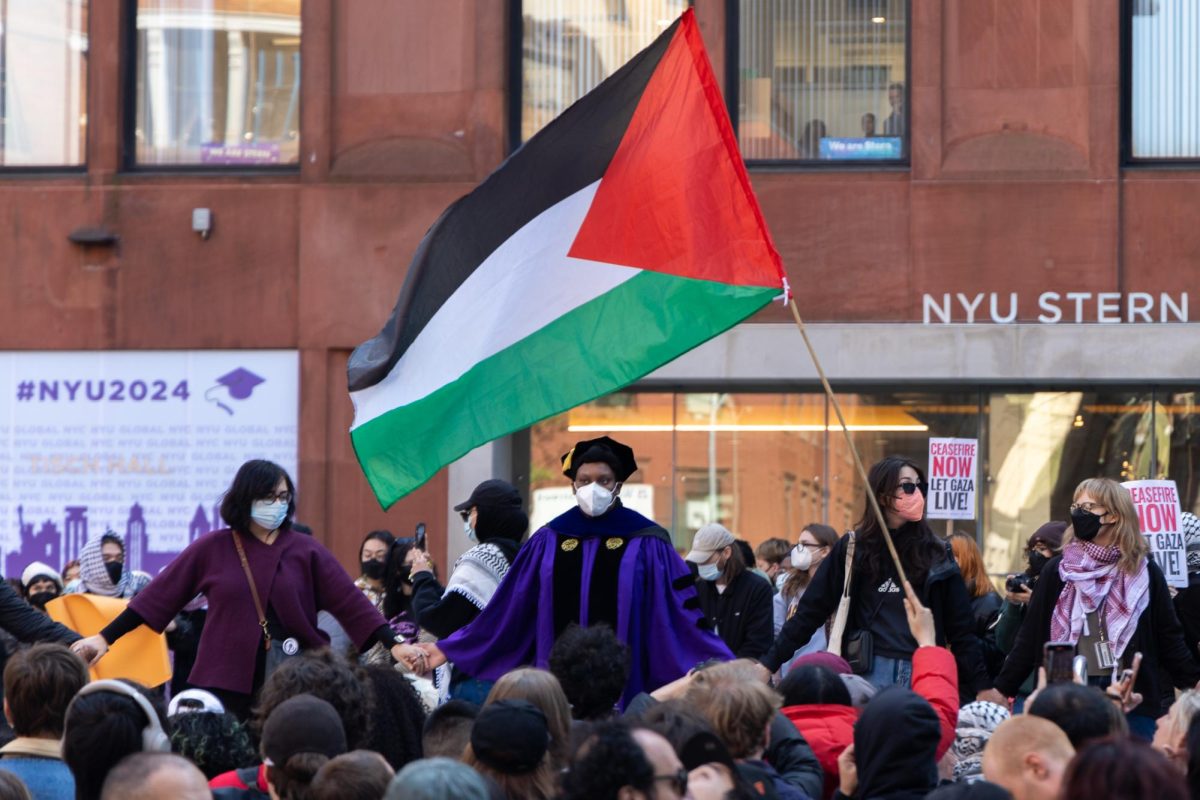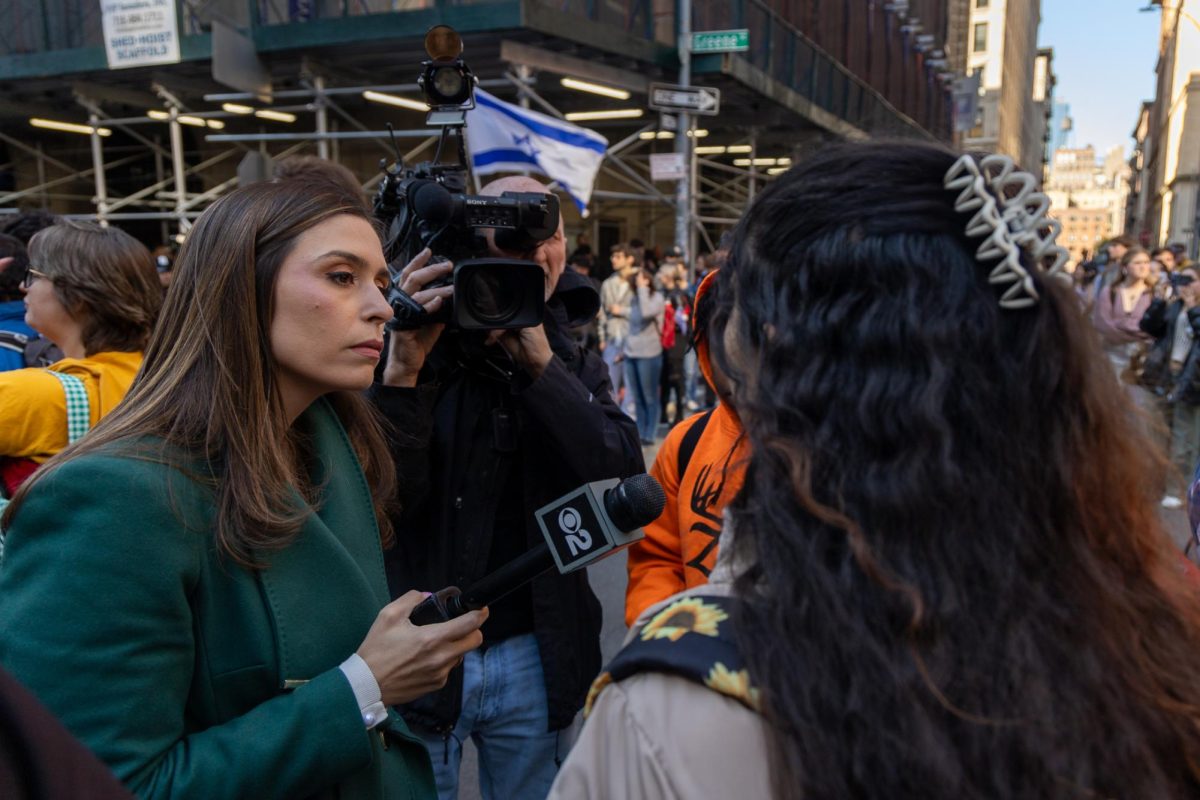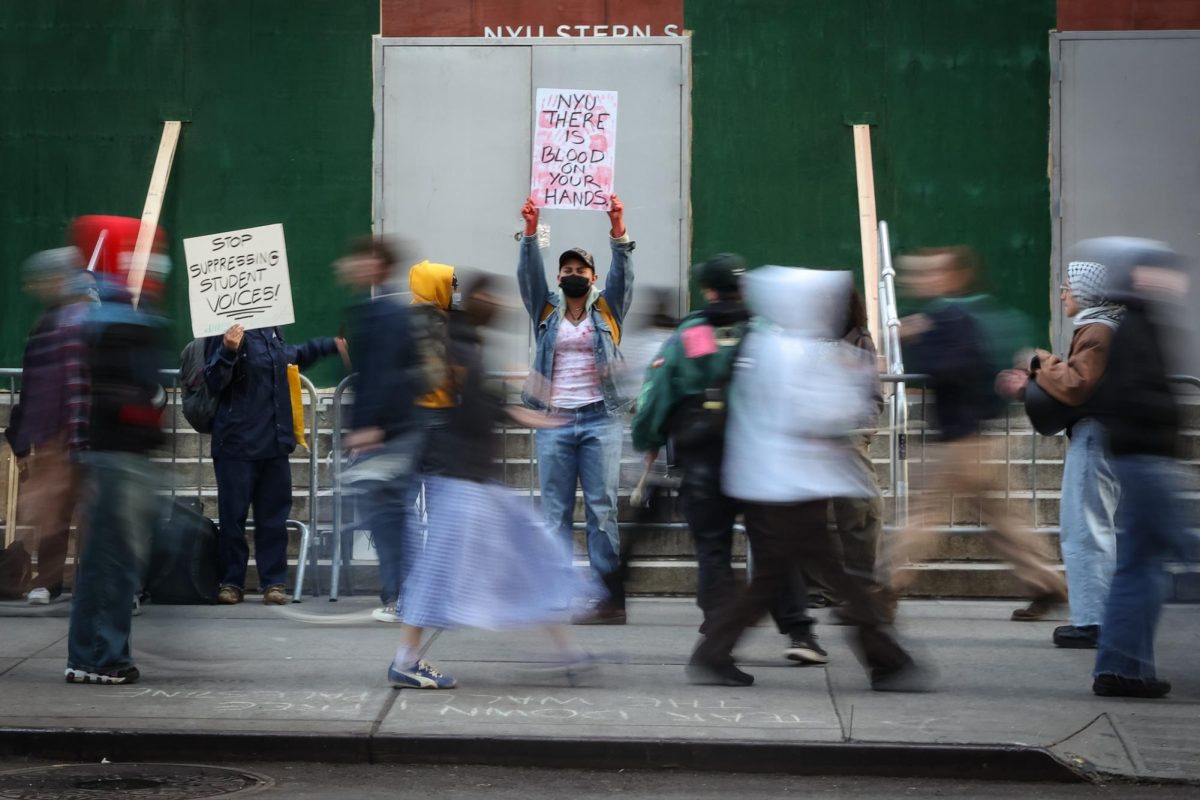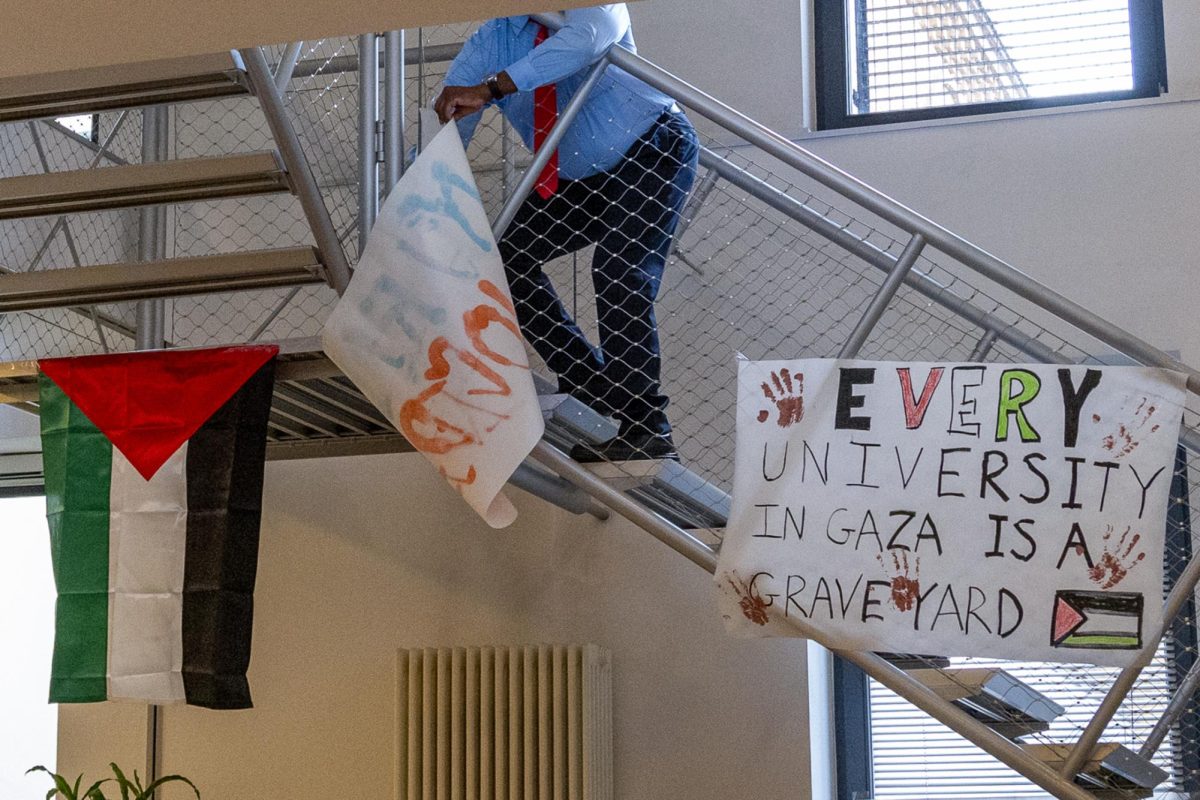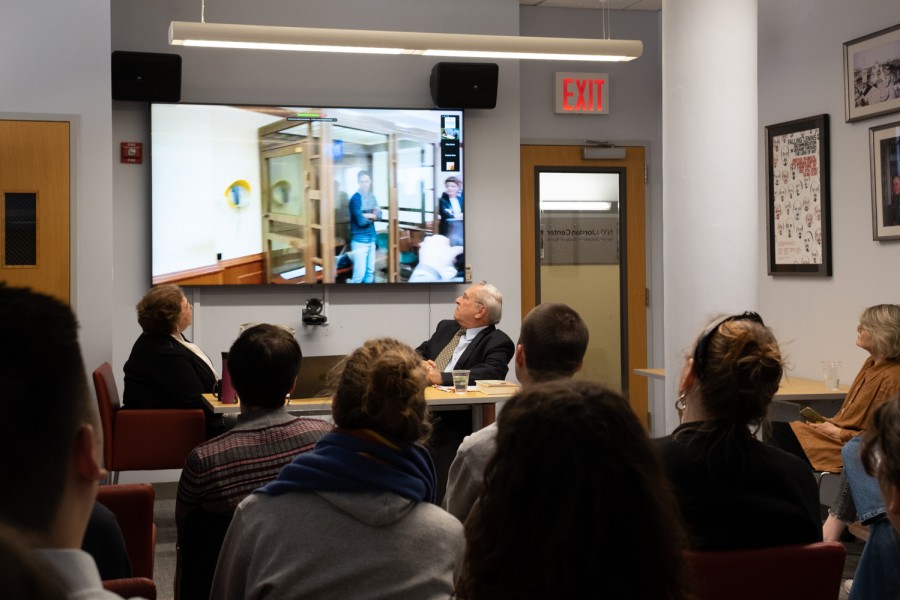Russian journalist Yevgenia Albats discusses journalists incarcerated in Moscow
Yevgenia Albats, NYU’s Distinguished Journalist in Residence and Russian journalist, hosted David Hoffman on April 18 to speak about the Moscow incarceration of two journalists.
Yevgenia Albats holds a conversation with David Hoffman, an author and Washington Post’s former Moscow bureau chief, on April. 18. (Samson Tu for WSN)
April 20, 2023
Two journalists who formerly worked out of Russia, David Hoffman and Yevgenia Albats, condemned the recent incarceration of two journalists in Moscow at a Thursday afternoon talk at the NYU Jordan Center for the Advanced Study of Russia. Hoffman, the former Moscow bureau chief for The Washington Post, spoke to Albats, who is NYU’s Distinguished Journalist in Residence, about media repression in Russia, which Albats said has worsened in the past year.
Evan Gershkovich, a Moscow correspondent for the Wall Street Journal, was recently imprisoned in Moscow on espionage charges, marking the first arrest of a U.S. journalist in Russia for that reason since the Cold War. On April 18, Gershkovich appeared in court, but a request to be released from custody was denied. The day before, a Moscow court sentenced Vladimir Kara-Murza, a contributing writer at the Washington Post, to 25 years in prison due to his opposition to the war in Ukraine.
According to Hoffman, Russia is likely using Gershkovich as leverage to negotiate the release of its citizens held hostage or incarcerated in other countries. He said that although Gershkovich is still imprisoned, the U.S. government may be able to negotiate his return if it offers to exchange someone of interest to Russia for his freedom.
“We’re going to grab a human being and put them in this jail, and then we’re going to try and negotiate with you to get somebody back,” Hoffman said. “It’s a really barbaric, uncivilized, evil practice of playing really kind of a game with people’s lives. That’s what happened to Evan.”
In the United States’ most recent prisoner exchange, Russian arms dealer Viktor Bout was traded for Women’s National Basketball Association player Brittney Griner. Griner, who was imprisoned in Russia for 10 months last year, has called on the U.S. government to bring Gershkovich back to the United States.
Hoffman said that it might be difficult to free Kara-Murza. The journalist played a significant role in advocating for the 2016 Global Magnitsky Act, which allowed the United States to impose sanctions on foreign officials who are guilty of human rights violations. He added that Kara-Murza’s arrest may have been the result of his opposition to Putin’s government and his efforts to challenge the unlawful practices of the oligarchy.
“In this case Putin probably is not interested in a trade, because he wants Vladimir to be a symbol that he can hoist up on a lamppost,” Hoffman said. “He wants somebody he can use to create fear for others who might protest, who might speak out.”
Albats said that the judge who sentenced Kara-Murza had been sanctioned under the Magnitsky Act, noting that a 25-year sentence is uncommon, especially among imprisoned journalists.
According to Hoffman, Gershkovich was one of the last Western correspondents remaining in Moscow after other major publications like the New York Times pulled individuals out to protect their safety.
“Putin has created a lot of ways to stay in power. But what this tells us is the one thing that really still frightens him is people who can challenge him,” Hoffman said. “He can have all the armored cars, secret military and security services in the world, but he doesn’t own people’s minds, and he knows that.”
Contact Alina Hollister at [email protected].

